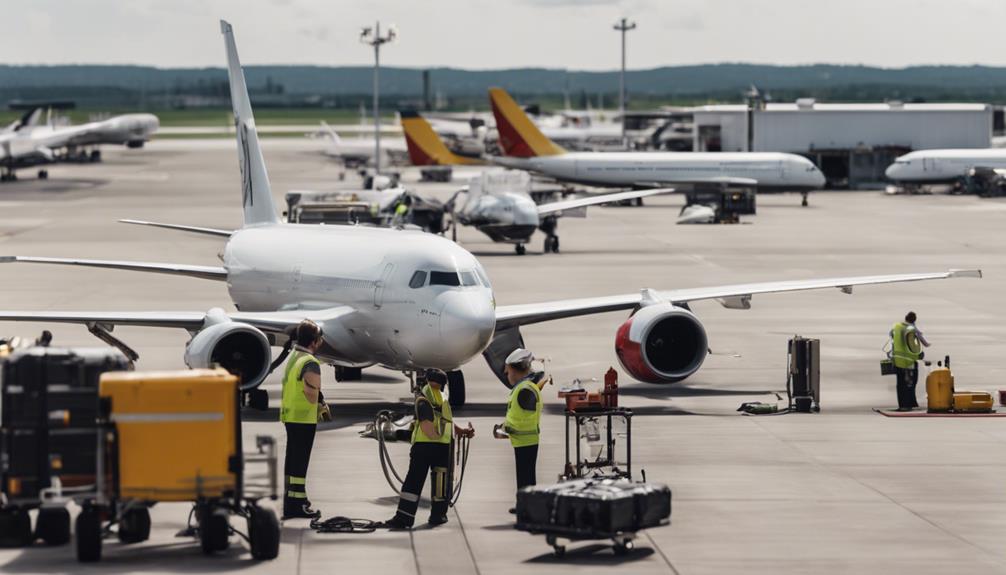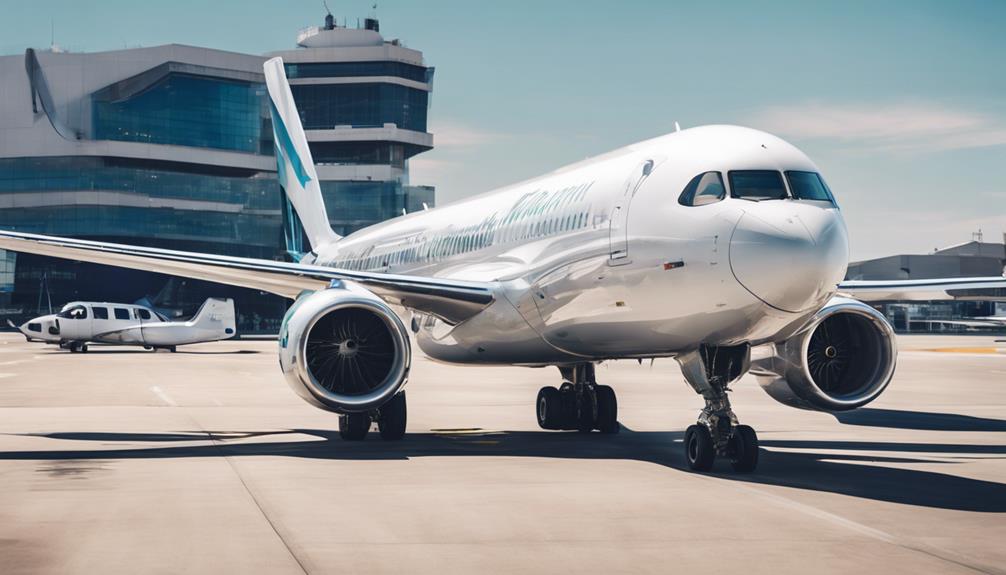If you're involved in the aviation industry in Washington, you've likely heard about the Aircraft Fuel Tax Bond. This bond isn't just a regulatory requirement; it plays a pivotal role in your business's financial strategy. By understanding who needs this bond and its benefits, you can better navigate the complexities of fuel tax compliance. But what happens if you overlook certain aspects of the application process or common compliance issues? The implications could be significant, and it's worth considering how you can protect your interests.
What Is the Aircraft Fuel Tax Bond?

When it comes to aviation, the Aircraft Fuel Tax Bond plays a crucial role in ensuring compliance with fuel tax regulations. This bond serves as a financial guarantee for the state, ensuring that you'll pay the required fuel taxes associated with aviation fuel. By obtaining this bond, you're also contributing to the funding of essential infrastructure projects, as the revenue generated from these taxes supports transportation systems.
If you fail to comply with these tax obligations, the bond provides the state with a source of funds to cover any unpaid taxes supporting government revenue.
Essentially, the Aircraft Fuel Tax Bond protects the government from potential losses due to non-compliance. It acts as a safety net, ensuring that even if you don't meet your tax obligations, the bond can be used to settle any outstanding debts. By securing this bond, you're demonstrating your commitment to adhering to the regulations set forth for aviation fuel usage.
Obtaining an Aircraft Fuel Tax Bond typically involves a review of your financial history and creditworthiness. The amount you'll need to secure the bond will depend on the estimated fuel tax liability you'll incur.
Who Needs This Bond?
The Aircraft Fuel Tax Bond is essential for various stakeholders in the aviation industry. If you're an aircraft fuel supplier, you need this bond to operate legally within the market. It ensures that you comply with state fuel tax laws, protecting you from potential liabilities.
If you're an aviation business owner, like a flight school or charter company, this bond is also crucial. It allows you to purchase fuel without pre-paying the tax, helping manage your cash flow more effectively. Without it, you could face significant financial burdens that impact your operations.
Additionally, if you're a fuel wholesaler, the bond is a requirement for you as well. It guarantees that you'll pay the necessary fuel taxes, preventing any disruptions in your supply chain.
Even if you're a fuel distributor, you'll find this bond indispensable. It helps you meet regulatory requirements and maintain your business relationships.
Benefits of the Bond

Unlocking the benefits of an Aircraft Fuel Tax Bond can significantly enhance your operations in the aviation industry.
First and foremost, this bond ensures compliance with state regulations, allowing you to avoid costly penalties and fines. By having this bond in place, you demonstrate your commitment to adhering to tax laws, which can improve your business's reputation among clients and partners.
Additionally, securing this bond can streamline your access to fuel supplies. Many suppliers require proof of an Aircraft Fuel Tax Bond before providing fuel, meaning you can keep your operations running smoothly without delays.
Furthermore, having this bond may lead to better financial management. It allows you to offset some tax liabilities, freeing up cash flow for other essential business needs. With this increased liquidity, you can invest in equipment, training, or expansion, ultimately driving your business forward.
Lastly, obtaining an Aircraft Fuel Tax Bond can give you peace of mind. Knowing that you're compliant and protected against potential tax-related issues lets you focus on what you do best—running your aviation operations effectively.
Application Process
Applying for an Aircraft Fuel Tax Bond is a straightforward process that can be completed in a few key steps.
First, gather all necessary documentation. You'll typically need your business license, tax identification number, and financial statements to demonstrate your creditworthiness.
Next, choose a surety company that specializes in bonds. Research various providers to find one that fits your needs and offers competitive rates.
Once you've selected a company, fill out the application they provide. Be prepared to answer questions about your business operations and financial history.
After submitting your application, the surety company will evaluate your information. They might request additional documentation or clarification during this time.
If everything checks out, you'll receive a quote for the bond premium.
Lastly, review the terms and sign the bond agreement. Once you've made the payment, the surety company will issue your Aircraft Fuel Tax Bond.
Keep a copy of the bond for your records, as you'll need it for compliance with tax regulations. Completing these steps efficiently ensures you'll have the bond you need to operate smoothly.
Common Compliance Issues

Navigating compliance with an Aircraft Fuel Tax Bond can be challenging, and many businesses face common issues that can lead to penalties or bond forfeiture.
One of the most frequent problems is failing to keep accurate records. You need to track fuel purchases, usage, and tax payments meticulously. Inaccurate records can trigger audits and result in hefty fines.
Another issue arises from not understanding state-specific regulations. Each state may have different requirements regarding fuel tax, and ignorance of these can lead to compliance failures. Make sure you're up-to-date with Washington's specific laws surrounding fuel taxes.
Additionally, late payments can cause complications. If you miss a deadline, you might incur penalties or interest charges, which can strain your finances. Regularly reviewing payment schedules can help you avoid this pitfall.
Lastly, ensure you're aware of any changes in legislation. Laws can change, and staying informed is crucial for compliance. You should subscribe to updates or consult with a tax professional who specializes in aviation fuel tax matters.
Conclusion
In conclusion, securing the WA Aircraft Fuel Tax Bond is essential for anyone involved in the aviation fuel industry. It not only helps you stay compliant with state regulations but also safeguards your business from potential fines. By obtaining this bond, you enhance your financial stability and reputation, making it easier to access tax-free fuel. Don't overlook the importance of this bond—it's a smart move for your peace of mind and long-term success in the aviation sector.


